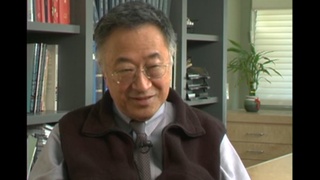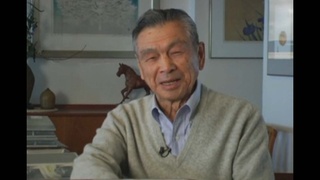Interviews
Impressions of student relocation in South Dakota
The answer is no [as to a choice of a college]. I had made an application to go to the University of Colorado in Boulder, Colorado. I was turned down by the U.S. Navy. The U.S. Navy apparently had some kind of research program going on there. When they learned that a Japanese American was seeking admission to the University of Colorado, they vetoed it. Again, idiotic, absolutely insane, un-American. So a friend of mine was going to Dakota Wesleyan and been accepted there, and said, “Why don’t you come with me and go to Dakota Wesleyan?” So I did. That’s where I ended up.
Date: August 27, 1998
Location: Pennsylvania, US
Interviewer: Darcie Iki, Mitchell Maki
Contributed by: Watase Media Arts Center, Japanese American National Museum









